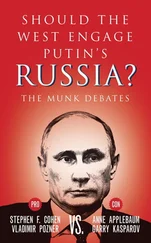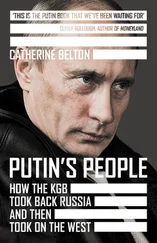But to see cracks spreading through the edifice of the Eastern Bloc was one thing; to see them spread to the Soviet Union itself was quite another. Even the loss of the three Baltic states—Estonia, Latvia, Lithuania—could somehow be justified: culturally and historically they belonged to Europe and had initially been acquired as part of the dirty deal, the Molotov–Ribbentrop Pact, that Stalin struck with Hitler in 1939. But it was unthinkable that Kazakhstan could be lost, Kazakhstan with its enormous prairies and wheat fields, its oil, uranium, and gold, its launching platforms from which the Soviets had sent the first Sputnik, dog, and male and female cosmonauts, into space. Even more unthinkable was that Ukraine could be lost. Kazakhstan may have been conquered and settled by Russians, but, to the Russian mind, Ukraine was Russia. All Russian history flowed from Kiev. Every schoolchild learned: Kiev is the mother of Russian cities, Ukraine is Russia’s breadbasket.
And the losses weren’t only emotional and symbolic. Ukraine was rich in coal, industry, agriculture. It had the port where the Black Sea Fleet was stationed, it had the only shipyard where aircraft carriers were built. Even Kazakhstan might in the end be arguable. But Kazakhstan was lost. And so was Ukraine.
It all seemed impossible, incredible. But as Putin put it: “There’s a lot that seems impossible and incredible and then— bang! Look what happened to the Soviet Union. Who could have imagined that it would simply collapse? No one saw that coming—even in their worst nightmares.” [182] Putin, First Person , p. 187.
The loss was indeed catastrophic. The USSR’s population had been somewhat over 300,000,000. Now Russia was down to half that, with its population continuing to fall for years, 170 people dying for every 100 babies born. The country was losing the equivalent of a San Francisco a year to alcohol, heart attacks, car wrecks, suicide.
The economic losses were immense not only in and of themselves, but in their consequences. The centralized command-and-control economy dictated where certain machines or parts were to be produced; many were concentrated in places that had now broken away. That system had never worked well anyway, and now that parts had to be not only shipped but imported, things only grew worse. The military losses were also immense. Both Tsarist and Soviet Russia had been known for their huge standing armies, but now there were 150,000,000 fewer people to draw from.
And over it all hung the malodorous air of farce and fiasco, defeat and disgrace. To make matters worse, the United States and the West were not only now the victors in the Cold War; they also wanted to take credit for the collapse of the Soviet Union. In his book Heroes British historian Paul Johnson epitomizes what was for Russians the West’s unbearable preening and triumphalist self-love: “Three people won the Cold War, dismantled the Soviet empire and eliminated Communism as a malevolent world force: Pope John Paul II, Margaret Thatcher and Ronald Reagan.” [183] Paul Johnson, Heroes (New York: HarperCollins, 2007), p. 253.
As if the writings of Solzhenitsyn, the actions of Sakharov, and the decisions of Gorbachev had not played the slightest part whatsoever. The actual physical losses—territory, population, agriculture, industry, space, and military—were horrendous enough, but the incessant crowing of the West was galling beyond measure.
In an ornate tsarist palace turned high-tech gym in St. Petersburg I had a conversation with a Russian gangster who, behind his very broad back, was called simply “Tank.” But his mind was sharp and he liked to sprinkle the occasional English phrase into his conversation. He took a very Darwinian view of power and the relations between states—to the victor the spoils and to the loser bitter humiliation. Speaking of the Cold War in particular, he said: “You won, we lost. We have to bow down to you. You have the right to teach us how to live.”
That same sense of humiliation, which Thomas Friedman has called “the single most underestimated force in international relations,” [184] Thomas Friedman, “Taking Ownership of Iraq,” New York Times , June 25, 2006.
was present in President Yeltsin’s voice when he exclaimed to President Clinton: “Russia isn’t Haiti!” [185] Strobe Talbott, The Russia Hand (New York: Random House, 2003), p. 197.
The Russia Hand by Clinton’s Russian adviser Strobe Talbott records Russian foreign minister Andrey Kozyrev saying in regard to the U.S. bombing of Serbia: “You know, it’s bad enough having you people tell us what you’re going to do whether we like it or not. Don’t add insult to injury by also telling us that it’s in our interests to obey your orders!” [186] Ibid., p. 76.
After the pain and humiliation of losing Poland, Hungary, Czechoslovakia, and East Germany, after the pain and humiliation of losing all the Soviet republics, it would seem that the hideous course had been run, that there was no more loss that could occur, no further humiliation that could be inflicted.
But in fact the greatest dangers lay ahead. Russia itself was at risk. The cracks that started in the Eastern Bloc and broke the USSR into fifteen separate countries were now threatening the new Russian Federation itself. The centrifugal demon wasn’t done yet.
The epicenter of schism was Chechnya. It was hardly a new problem. The fierce mountaineers of the Caucasus—Chechens, Ingush, Dagestanis—had been resisting the Russians since the eighteenth century. That resistance flared into war in the mid-nineteenth century when a great leader arose. The Imam Shamil, a Dagestani, was able to unite the various tribes and nations of the Caucasus, becoming both their spiritual and military leader. Handsome in a fierce, severe way (to this day his picture, along with that of Jean-Claude Van Damme or Rambo, adorns the bedroom walls of many teenage boys in the Caucasus), he was a cunning and valiant leader, able to resist the tsar’s armies for nearly thirty years until he was taken prisoner in 1859. The Russians treated him with honor and he died a white-bearded patriarch in the holy city of Medina in 1871.
But his fighting spirit lives on, especially among the Chechens, the Comanches of Islam. And Shamil’s hometown of Gimry is kept under strict government control so that it does not become a sacred place and rallying point—all residents have a five-digit number that they must recite to police at checkpoints when entering or leaving town.
The outbreak of war in 1994 between Chechnya and Russia sent existential shock waves to the north. This wasn’t just another tiny republic seeking vainglorious independence; this could be the beginning of Russia’s unraveling, the secret sweet dream of the United States and NATO. That same year NATO launched airstrikes against the Bosnian Serbs. Strobe Talbott describes the reaction of the Russian hawks: “NATO’s war against Belgrade over Kosovo was a warm-up for the one it would someday unleash against Moscow over Chechnya.” [187] Ibid., p. 357.
NATO bombing or invasion aside, the parallels with Yugoslavia were ominous. Putin was obsessed by what he called “the Yugoslavization of Russia,” [188] Putin, First Person , p. 141.
the breaking apart into ever smaller fragments. Chechnya, said Putin, “is a continuation of the collapse of the USSR.” [189] Ibid., p. 139.
And it wasn’t just Chechnya. “The entire Caucasus would have followed … and then up along the Volga River … reaching deep into the country.” [190] Ibid., p. 142.
Putin was very clear about his “mission”: “If we don’t put an immediate end to this Russia will cease to exist.” [191] Ibid., p. 140.
Читать дальше
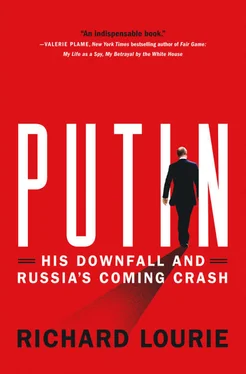

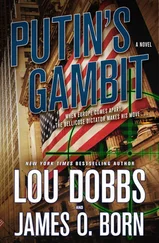
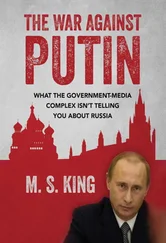
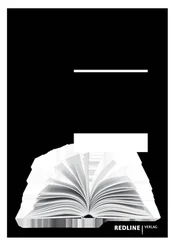
![Stephan Orth - Behind Putin's Curtain - Friendships and Misadventures Inside Russia [aka Couchsurfing in Russia]](/books/415210/stephan-orth-behind-putin-s-curtain-friendships-a-thumb.webp)

